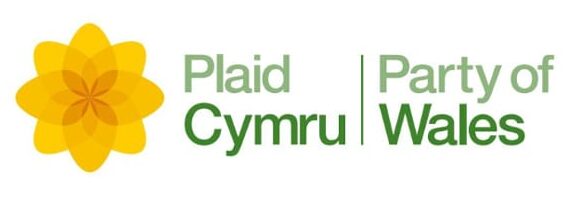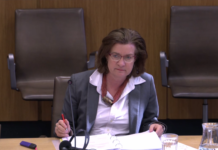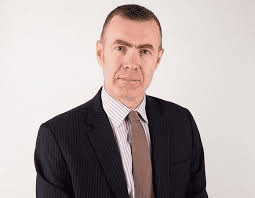
Plaid Cymru leader Adam Price has today (Sunday 27 February) written in the Sunday Times that “we cannot simply absolve ourselves of our responsibility” to the people of Ukraine as they face an increasingly bloody Russian invasion.
Writing about his experiences meeting Government ministers, trade unions, organisations and the families of people living under Russian occupation in the east of the country last week, he said that people were “adamant: they wanted peace but were prepared to fight for their independence, their freedom, and their democracy”.
Mr Price writes that the UK Government’s sanctions are so far insufficient, urging Ministers to “turn the policy of piecemeal, ratcheted sanctions into a full-scale economic embargo”
In the article, Mr Price also calls for:
· Urgent economic aid and lines of credit to the Government of Ukraine and take steps to freeze or cancel their foreign debt.
· Stop all civil aviation – not just Aeroflot – out of Russia
· Bring an indictment against Putin, Lavrov and others for the crime of aggression at the UN Security Council – and signal, when Russia uses its veto, that we will not stop until they stand indicted at the Hague.
Plaid Cymru Leader Adam Price MS said,
“At the beginning of this week, I was in Kyiv able to hear first-hand accounts from the families of those already living in the already Russian occupied territories in the east of the country.
“The quiet determination among the Ukrainian people was palpable while I was there. But in declaring war on Ukraine Putin has declared war on the right of nations everywhere to self-determination. It will now be the determination of the Ukrainian people that will be a decisive factor in deciding how this war ends.
“However, though the Ukrainians are currently fighting alone, we cannot simply absolve ourselves of our responsibility. We cannot simply dismiss this as yet another “foreign land of which we know nothing”. What happens in Ukraine will reverberate around the world for years to come, from Bosnia to Taiwan.
“Putin is irrational and nihilistic enough to use any provocation to start World War Three which makes the prospect of direct NATO involvement in the war a step fraught with peril.
“But there is much else we can and must do, with urgency. We need to turn the policy of piecemeal, ratcheted sanctions into a full-scale economic embargo – as total as the one imposed on Iran – designed to cripple the entire Russian state and prevent its economy from functioning. We need to provide the Ukrainian Army with defensive systems of a scale and sophistication that could make a tangible difference to the situation on the ground.
“We need to provide urgent economic aid and lines of credit to the Government of Ukraine and take steps to freeze or cancel their foreign debt. We need to stop all civil aviation – not just Aeroflot – out of Russia. And finally, we should bring an indictment against Putin, Lavrov and others for the crime of aggression at the UN Security Council – and signal, when Russia uses its veto, that we will not stop until they stand indicted at the Hague. Putin is not invincible.
“But we must now show the same unity, resolve and courage of conviction that is driving ordinary Ukrainians to put their bodies on the line – not just for their children, but also our own.
Full Adam Price – Sunday Times article on Ukraine
There are hinge points in history. Moments of inflection when the landscape of our lives shifts so irrevocably that the aftermath becomes almost unrecognisable from what came before. Ukraine, February 2022 will be forever a line of demarcation in world history, a line being written in innocent blood. The only question now is what kind of future we are about to inhabit.
The omens for the people of Ukraine are certainly not good. The truth on the ground quickly exposes Putin’s Big Lie, that his military are there to liberate the Ukrainian people from fascism. The jackboot is very much on the other foot.
At the beginning of this week, I was in Kyiv able to hear first-hand accounts from the families of those already living in the already Russian occupied territories in the east of the country. The family of Oleg Shevandin – a former world King Fu champion and well-known public figure – told me he was abducted by masked men with semiautomatic weapons in the Donetsk region while on his way to visit his mother in 2015. His family don’t know where he is or even if he is still alive. I heard from the family of Dr Natalia Statsenko, arrested in Donetsk in July 2019 on the trumped-up charge of ‘espionage’ for the crime of writing to a journalist. She was transferred to the former arts centre “Izolyatsia”, now a military prison where detainees are known to have been tortured and is still being denied medical treatment despite being in constant pain. I heard directly from ethnic Tartars about the brutal repression of their minority in Crimea, and about the 200 children of political prisoners effectively abandoned there after their parents were thrown to Putin’s wolves.
This is the horrific reality that now threatens to befall the whole of Ukraine. Ukraine is no utopia. It is a messy, complex, highly contested work-in-progress where people are as impatient with their politicians as they are here. The human rights campaigners, trade unionists and activists I met had a long list of their country’s flaws, from the erosion of workers’ rights to the continued battle against corruption in a country that has its own oligarch problem despite two popular revolutions against the post-Soviet kleptocracy. But the fact these criticisms could be made openly without fear of retribution – in stark contrast to the crackdown on anti-war protests in Russia – marks Ukraine out as the strongest democracy in all the post-Soviet countries outside the EU.
And everyone I met – from the young mother who was a member of the Volunteer Brigade protecting Kyiv, to the LGBT activists in Kyiv Pride, to the left-wing activists in Socially Rukh, to Kyiv Mayor Vitali Klitschko – like many here, by birth, half-Russian half-Ukrainian – were adamant: they wanted peace but were prepared to fight for their independence, their freedom, and their democracy. As the leader of the independent miners’ trade union told me “My members in the Donbass – Russian-speaking miners – have had enough of running away from Putin. They will fight”.
The quiet determination among the Ukrainian people was palpable while I was there. The sense of surviving against all odds is deeply ingrained in the Ukrainian psyche; captured in the words of the first line of the national anthem “Ukraine has not died”. Successive campaigns of Russification, the Holodomor famine that killed millions under Stalin, the “Great-Russian chauvinism” whose corrosive effects even Lenin was forced to concede, together with the 1941 invasion by Nazi Germany still in living memory, have given Ukrainians a steely resilience crystallised in the street-by-street popular resistance that is now Putin’s greatest obstacle. In declaring war on Ukraine Putin has declared war on the right of nations everywhere to self-determination. It will now be the determination of the Ukrainian people that will be a decisive factor in deciding how this war ends.
However, though the Ukrainians are currently fighting alone, we cannot simply absolve ourselves of our responsibility. We cannot simply dismiss this as yet another “foreign land of which we know nothing”. As a Welshman I felt instinctively at home in a bilingual country of farmers and miners, where choirs sing in the underground and they build monuments to their poets. But Kyiv could be any European city – modern, vibrant, and young – where people have the same hopes and aspirations to live in peace and prosperity as us. If we allow tanks to roll on Kyiv’s streets, then we normalise war on our own streets.
In that sense the Ukrainian people are fighting for all of us (including those many ordinary Russians opposed to Putin’s regime) in a new frontline between two futures: a world of rules and law, of respect for rights and democracy, or a lawless world where brute force will rewrite borders, decapitate governments, and disappear people and whole nations from the face of the earth. What happens in Ukraine will reverberate around the world for years to come, from Bosnia to Taiwan.
Putin is irrational and nihilistic enough to use any provocation to start World War Three which makes the prospect of direct NATO involvement in the war a step fraught with peril. But there is much else we can and must do, with urgency. We need to turn the policy of piecemeal, ratcheted sanctions into a full-scale economic embargo – as total as the one imposed on Iran – designed to cripple the entire Russian state and prevent its economy from functioning. We need to provide the Ukrainian Army with defensive systems of a scale and sophistication that could make a tangible difference to the situation on the ground.
We need to provide urgent economic aid and lines of credit to the Government of Ukraine and take steps to freeze or cancel their foreign debt. We need to stop all civil aviation – not just Aeroflot – out of Russia (Why should Russian businesspeople be able to fly when Ukrainians can’t?) And finally, we should bring an indictment against Putin, Lavrov and others for the crime of aggression at the UN Security Council – and signal, when Russia uses its veto, that we will not stop until they stand indicted at the Hague. Putin is not invincible. But we must now show the same unity, resolve and courage of conviction that is driving ordinary Ukrainians to put their bodies on the line – not just for their children, but also our own.
Help keep news FREE for our readers
Supporting your local community newspaper/online news outlet is crucial now more than ever. If you believe in independent journalism, then consider making a valuable contribution by making a one-time or monthly donation. We operate in rural areas where providing unbiased news can be challenging. Read More About Supporting The West Wales Chronicle



















